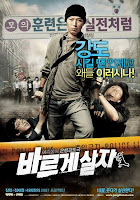One of Fantasy Flight Game's Gencon announcements has been their new Star Wars RPG. I've been getting information from different sources, so I thought I'd try to compile it all into a single blog post. (picture is originally from the D6 Generation on twitter).
According to Tom Vassel, the game will feature custom dice and apps, and the first apps will be released tonight. Also, Jay Little is apparently the lead designer. He was also apparently the lead designer on Warhammer Fantasy Roleplay 3rd Edition.
Jason Marker and Sterling Hershey have both tweeted that they are involved in writing for the game.
As can be seen in the picture, the game is called Edge of the Empire and they have beta rules out for it which they are selling at Gencon.
That's pretty much all the information I can find right now. There doesn't appear to be any information up on FFG's site yet.
I'm heartened by the apparent setting being post-prequels. I'm disheartened by the inclusion of special dice and having the same lead designer as WHFRP3, not because I have anything against him, but because it would seem to hint that the game might be based on the WHFRP3 engine, and I'm not a big fan of that. Still, I'm cautiously optimistic that this might be a game I'll actually play at some point.
Update Continued: The setting is definitely post-prequel for all three games planned. The first is going to feature the outer rim and the smugglers, bounty hunters, and other scum that populate it. The second is going to feature the rebellion, and the third is going to feature the handful of force users that have managed to survive the Empire's purges. I love this. I think the rebellion era is still the richest one available for roleplaying in.
On the other hand, they want me to pay $30 to playtest the game? I didn't realize that FFG included smoking crack as part of their design process. I'll wait for the finished product, thank you very much. If you want me to playtest, I'd be happy to, just show me where I can download a free pdf.






.jpeg)









